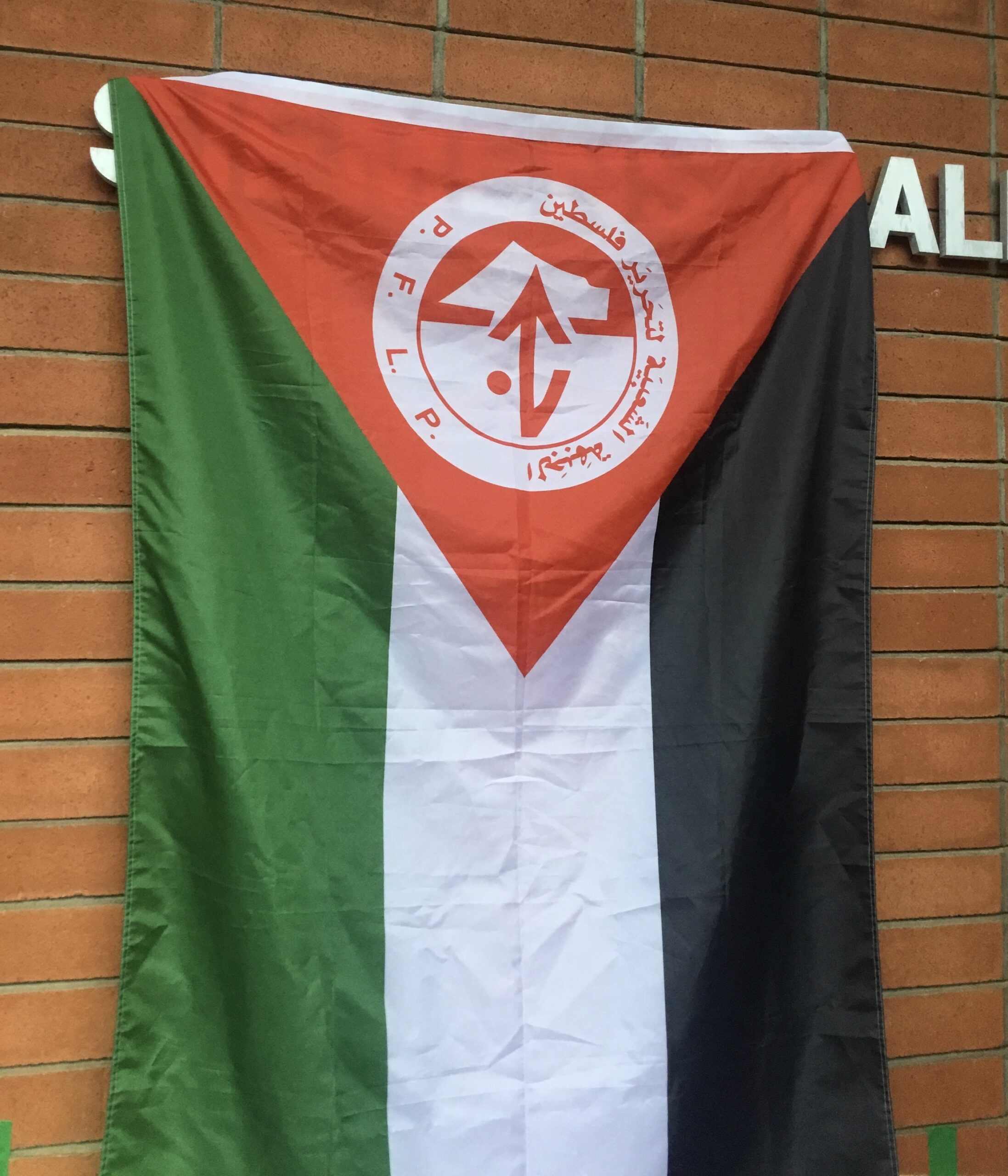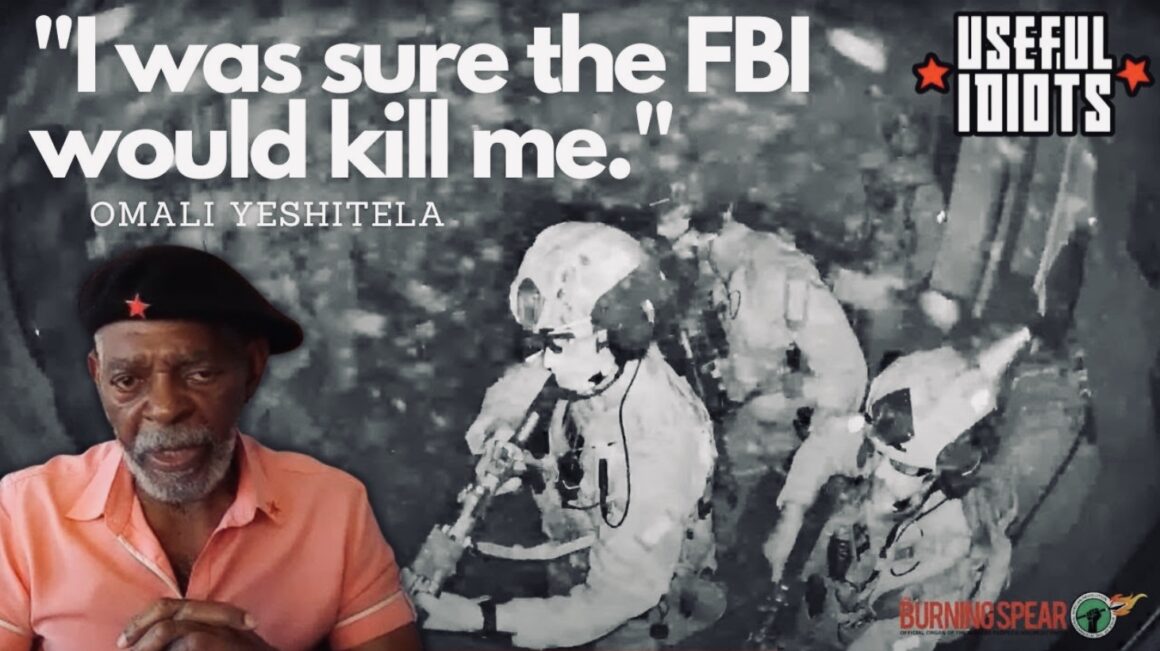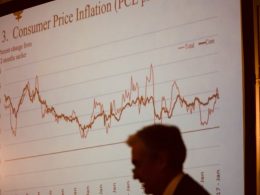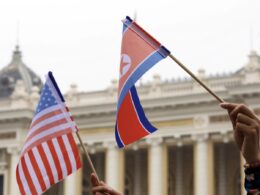In 1952, when the Communist Party USA was still an effective revolutionary vehicle, party leader William Z. Foster wrote that “The Communist Party, although it does not advocate violence in the workers’ struggles, cannot, however, declare that there will be no violence in the establishment of socialism in this country. This is because of the certainty of reactionary attacks from the capitalists. The latter might even be able, in case of inadequate resistance by the masses, to destroy democracy outright and to establish an American type of fascist-like regime. In such an event there would result an entirely new political situation, where the masses would be faced with the need of militant struggle for the most elementary economic needs and democratic rights. In the United States there is a grave danger of such fascism.”
Today, over a decade into the new cold war our ruling class has started to try to undo U.S. hegemony’s decline, such a danger has been realized. The magnitude of the threat is hidden only for now, and will become fully clear as soon as the state gets sufficient incentive to use the powers it’s gained. To illustrate this threat, and what’s needed to counter it, I’m going to be repudiating different parts from that same essay by Foster; parts which have been proven wrong.
The Communist Party’s reasons for expecting peaceful transition to socialism in the USA
There are pieces of knowledge which Foster couldn’t have attained at the time, while there are others I feel he was ignoring even though they were available. That doesn’t mean I don’t empathize with his perspective that a peaceful transition to socialism is possible in the USA, as no communist prefers war to peace. I only seek to show why it was the part of his essay which speculated about us needing to face a highly menacing fascist state; rather than the part which speculated we may be able to defeat capitalism more easily; that represents the realistic assessment. However much I respect Foster, it’s necessary to talk about where he and those in his tendency were mistaken.
The essence of his error was assuming the kind of fascist regime he talked about can be peacefully defeated in the United States, so long as the anti-fascists have strong enough organizations and sufficient global support. Especially in the core of imperialism, where capital is strong enough to dominate the state until it’s overthrown, those things aren’t adequate for beating fascism. We have to act like that darker scenario Foster talked about is the scenario we’ll be operating within, because it’s what’s going to happen; or, at the stage we’re now in, rather what’s already beginning to happen.
As the elites react to the failure of their geopolitical gamble in Ukraine, we’re progressively experiencing what Edward Snowden has called “turnkey tyranny,” where a government quietly takes away the people’s rights so that it can later violate their freedoms with impunity. Thereby, the fascist-type regime Foster warned of has already been established, making empty the anti-fascist posturings of Democratic Party-aligned “leftists.” The Democrats are themselves practicing fascism, and are doing so in a way which the highest levels of capital will always support. Fascism is the power of finance capital, meaning whichever element carries out the whims of finance capital is the one that’s advancing fascism. And with the coming of the new cold war, the Democrats have become finance capital’s primary tool for waging wars; censoring anti-imperialists; indicting rebels like Omali Yeshitela of the Uhuru org; and ultimately targeting such rebels without courts even being involved.
Because that dangerous regime is already in place, and is going to grow bolder in its anti-revolutionary warfare as the class struggle escalates, the first part of Foster’s criteria for the movement needing to adopt a more intense type of struggle has been fulfilled. That wasn’t all he said, though, about what the prerequisites are for peaceful transition to socialism. Foster observed that Lenin “outlined a peaceful perspective for the Russian Revolution. And Stalin, writing in 1928, while pointing out the danger of capitalist violence at that time, also said that with the strong growth of world socialism, ‘a peaceful path of development is quite possible for certain capitalist countries.’ The C.P.U.S.A. proceeds upon the basis that such a possibility exists in the United States.”
Foster explained that the essence of why the party believed as such was because in their analysis, the workers movement had the ability to build a political structure of its own; a structure which could bring about an end to the dictatorship of the bourgeoisie in a peaceful way:
The Communist Party’s orientation for a possible peaceful transition to socialism in the United States is based upon four elementary considerations: first, the fight of the working class for its immediate demands is the very substance of democracy, it strengthens basically the democratic forces in our country, and by the eventual establishment of socialism it raises democracy qualitatively to a new high level; second, the working class, led by the Communist Party, harmonizes its methods with its ends by fighting for both its immediate and ultimate objectives with the most peaceful and democratic means possible; third, the workers and their allies, constituting the vast majority of the people and possessing immense organizations, now have the potential power to curb, restrain, and make ineffective whatever violence the capitalists may undertake in their attempt to balk the will of the people and to prevent the establishment of socialism; and fourth, in recent years, on the international scale, there has been an enormous growth of power in the camp of democracy and socialism.
Given that Foster recognized fascism could easily become a far more heavily employed practice by our class enemies, he and the ideological strain he represented could only put forth these four arguments while operating on two assumptions:
1) that an American fascist-type regime would be so weak compared to our workers organizations, such a regime wouldn’t be able to succeed at inflicting fatal harm upon our movement—even if we’re not equipped for any substantial physical resistance. The party believed the USA’s communist movement could avoid the scenario the German communists were in prior to the Third Reich, where the non-fascists were too divided for a peaceful resistance towards fascism to be possible.
2) that the global allies of socialism and anti-imperialism are strong enough to be capable of minimizing how much the USA’s fascist regime is allowed to employ violence. The party was expecting for the anti-fascist governments to succeed at preventing a counter-revolutionary extermination campaign in the USA, whether by applying international pressures; by militarily intervening; or merely by providing the revolutionaries with the resources they would need to be be strong enough to carry out a peaceful transition.
Fascism will succeed at exterminating its enemies if they don’t adequately prepare
There are certain things we can do which will make our transition into socialism more resemble that peaceful, ideal scenario. The recent efforts to unify orgs like Uhuru with orgs like CPI, in spite of their diverging views on U.S. patriotism, are making our movement stronger. The efforts by these orgs to build relationships with all countries which share our opposition towards U.S. hegemony—including Russia—are also putting us in a better place to find outside support as fascism tries to destroy us. Are these kinds of actions enough to make us able to mitigate the reactionary backlash, at least enough for peaceful transition to be possible?
History doesn’t support that notion, and history arguably didn’t support that notion during Foster’s time either; the rise of Nazism, as well as the war which was required for defeating Nazism, had already happened when he was arguing an American fascist state can be peacefully subdued. And though fascism could have been stopped from coming to power in Germany had the non-fascists there united, in the modern USA fascism already dominates, so even if we can unite against fascism it’s too late to prevent it from gaining power. We can’t ignore what turnkey tyranny means: that fascism is guaranteed to come for us, and will destroy us if we don’t do all that’s necessary for defeating it.
Since World War II, numerous other events have occurred which show even the strongest revolutionary organizations can be crushed if they act like they can win peacefully; and under our conditions, where a fascist apparatus has already been thoroughly constructed, there’s no question that making such an assumption would doom us. I understand Foster recognized that the party couldn’t proclaim the transition to socialism will be totally peaceful; my concern with the ideas he put forth was that it can lead communists not to sufficiently emphasize preparing for the most dire scenario. One can be aware that a more severe situation is possible; while endangering themselves by still entertaining the idea that such a situation can be avoided through methods which can’t actually stop that outcome. We need to have the mindset that the extreme scenario is what we must prepare for, not what we might have to prepare for; because under our conditions, that scenario is doubtless coming, like it’s come to so many other places.
That direness was what the revolutionaries had to confront in Indonesia, and in the numerous other countries where Indonesia’s strategy for fascist violence got used as a model by the U.S. empire. The Communist Party of Indonesia was the world’s largest non-ruling communist party, and it was strong enough to be heavily influencing the country’s bourgeois government towards anti-imperialism. Yet the CIA was able to violently disband it, and then exterminate everyone who so much as associated with left-wing politics, by installing a fascist regime via a military coup. (Ethnic Chinese were targeted in the purge as well.) And the fascists were so successful at this, as concluded by Joseph Hansen in his introduction for The Catastrophe in Indonesia, because the party’s leaders had in essence failed to anticipate that the struggle would take on a different nature; that the party’s existing practice of movement-building without sufficient arms or combat training wouldn’t come without risk.
Writes Hansen about the inadequacy of the party’s warnings prior to the coup: “These warnings, voiced on the very eve of the country’s counterrevolutionary coup, then already in full preparation, came without any previous or accompanying measures for broad mass mobilizations, without preparation for a general strike, without preparation for arming the masses, without concrete warnings about the impending army coup. The warnings could only heighten the determination of the counterrevolutionaries to strike immediately. They could not create adequate means to prevent or to reply to the counterrevolution.” That this happened only a decade or so after Foster said the strength of the global revolutionary forces had created an effective buffer against reactionary violence shows how much Indonesia’s genocide changed the class war; it proved that anti-communist extermination campaigns even bigger than the ones of the century’s earlier fascist states can be carried out, even when the anti-fascists have mighty allies.
Out of all the other examples of genocidal states being able to pursue their goals for political and racial extermination regardless of how strong the progressive forces are globally, Israel is perhaps the strongest. With the decline of U.S. dominance, the globe’s anti-imperialist forces have been able to gain a likely unprecedented amount of strength and unity, building economic and infrastructural networks in the form of the BRI, BRICS, and other cooperative mechanisms. Moreover, even the imperialism-complicit United Nations is condemning Israel’s genocide of the Palestinians, as it’s routinely done for a long time. Yet Israel is able to continue with the massacres, knowing no one can intervene to put an end to its crimes; Russia may have been able to destroy essential parts of fascist Ukraine’s armed forces in response to Kiev’s genocide of the Russian speakers, but as of now, no country can do the equivalent to Israel. At least not without expecting to get destroyed by Israel’s nuclear weapons.
Israel is showing that whatever strength for revolutionary politics exists outside the jurisdiction of a fascist state, that state is nevertheless capable of using genocidal means to try to crush revolution. And that due to this extreme nature of the threat which a genocidal state represents, any outside help the rebels receive is largely going to be about advancing resistance methods which aren’t peaceful; countries like Iran and socialist Korea have been sending military aid to the Palestinians, because the circumstances of the Palestinians have forced them to use military means.
Foster’s analysis is still partly right; except not in a way that shows peaceful transition is possible in the USA. There are cases where oppressed peoples have managed to get rid of their fascist governments in ways that, though not fully peaceful, can be overall considered “peaceful” transitions of power; three years ago, the Bolivian indigenous movement used the threat of unmanageable unrest to pressure their fascist U.S. coup regime into holding elections, which the socialists then used to win back power. (Armed struggles were a big part of the resistance to the coup, with the people’s victory only able to be considered peaceful due to the socialists not having had to storm the presidential residence.)
Another such example is Venezuela’s Bolivarian revolution, where Chavez could avoid having to violently overthrow the state by building a strong workers movement leading up to his election. Bolivia and Venezuela are not the United States though; they’re former neo-colonies, on the periphery of imperialism. In the core of imperialism, such reform-based routes to liberation aren’t viable. The capitalist state here is designed to be unable to let socialists win power through elections, or through purely organizational methods that don’t involve giving our cadres the most militant types of training. Prior to Indonesia’s genocide, perhaps it felt more likely that such a softer strategy was a viable route towards socialism in the USA; now that history has shown us it’s not a viable route, we must take this lesson seriously.
When it’s not possible to prevent our extermination by merely building alliances and strengthening our organizations, does it mean anything that we want a peaceful transition to socialism? Under certain circumstances, it stops mattering what one wants, as reality is going to force things to go in a different way than what’s ideal. That’s not to say our pro-peace stance can’t still have a positive impact, though. The proponents of ultraviolence within radical spaces point to the fascist threat, and claim this justifies using violence whimsically, wantonly, and without strategy or discipline. We respond to the threat by deciding to act with even more care and caution, knowing adventurism would only lead to defeat. That’s the thinking we must cultivate within our cadres as we get ready for the next stages in the struggle.
————————————————————————
If you appreciate my work, I hope you become a one-time or regular donor to my Patreon account. Like most of us, I’m feeling the economic pressures amid late-stage capitalism, and I need money to keep fighting for a new system that works for all of us. Go to my Patreon here.
To keep this platform effective amid the censorship against dissenting voices, join my Telegram channel.








